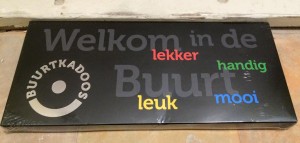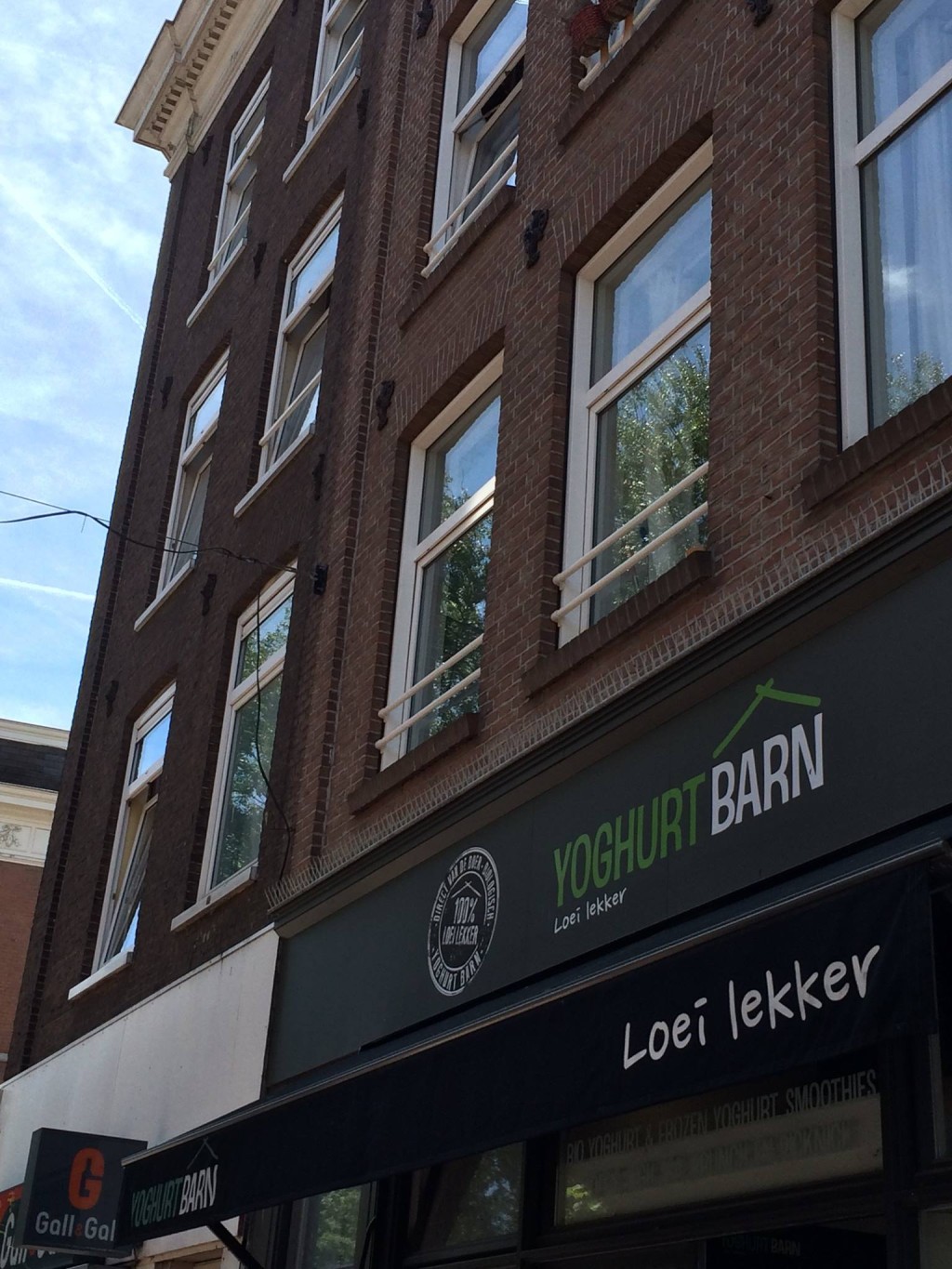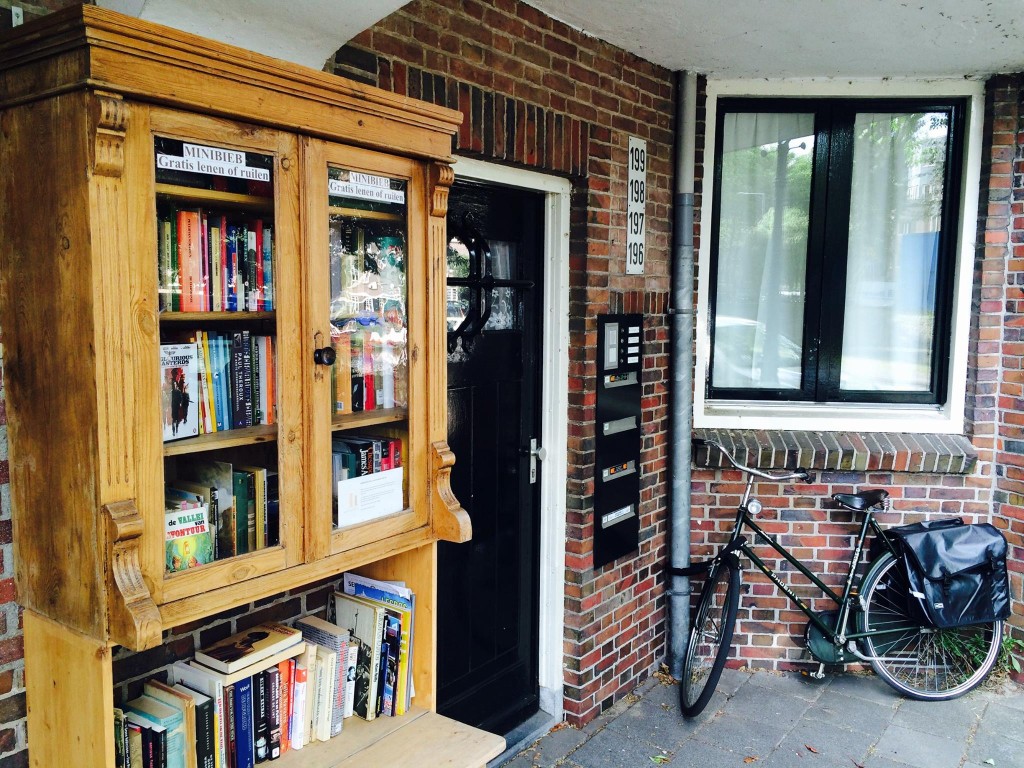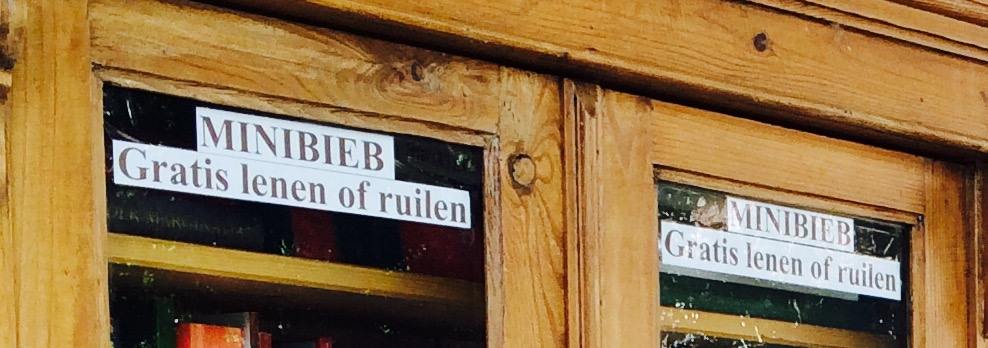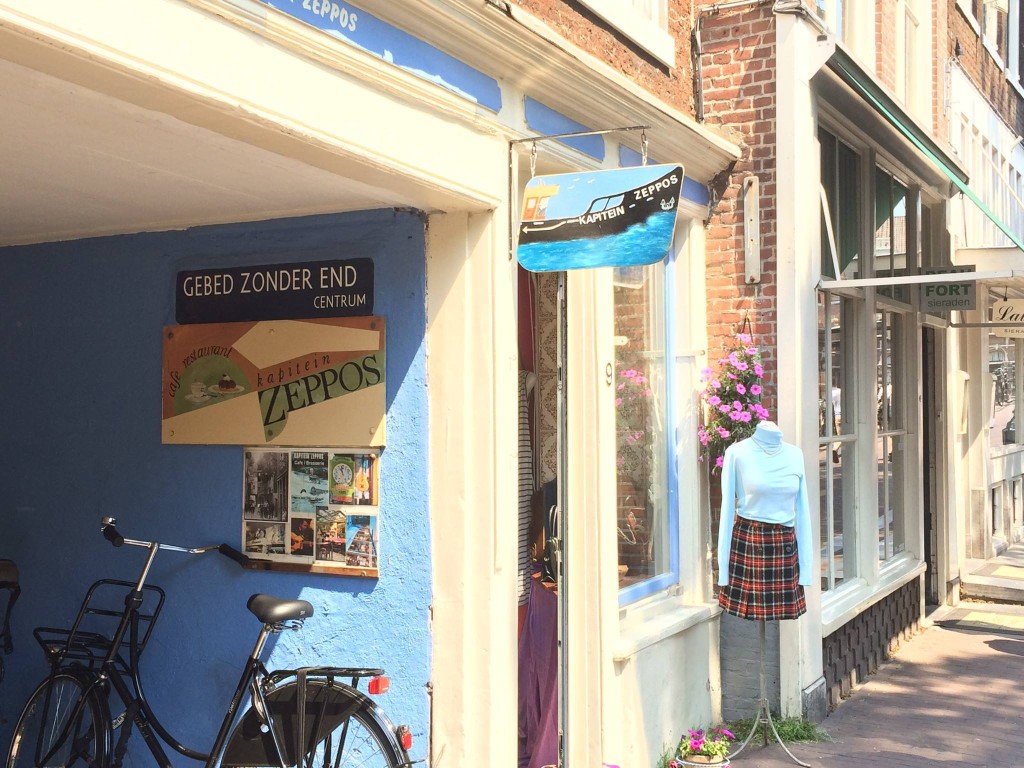Forced to walk face down in rainy Amsterdam you sometimes come across something nice. ‘Vertaling’ is derived from the verb ‘vertalen’ which is based on the noun ‘taal’ (language).
The act of changing (from one language to the other) is caught in the prefix ‘ver’ that often indicates a resulting change of state when used in a verb. Examples: ‘verhuizen’ (to move house), ‘vernieuwen’ (to renew), or the very applicable ‘verregenen’ (being spoiled by rain) e.g. ‘De bruiloft is helemaal verregend.’
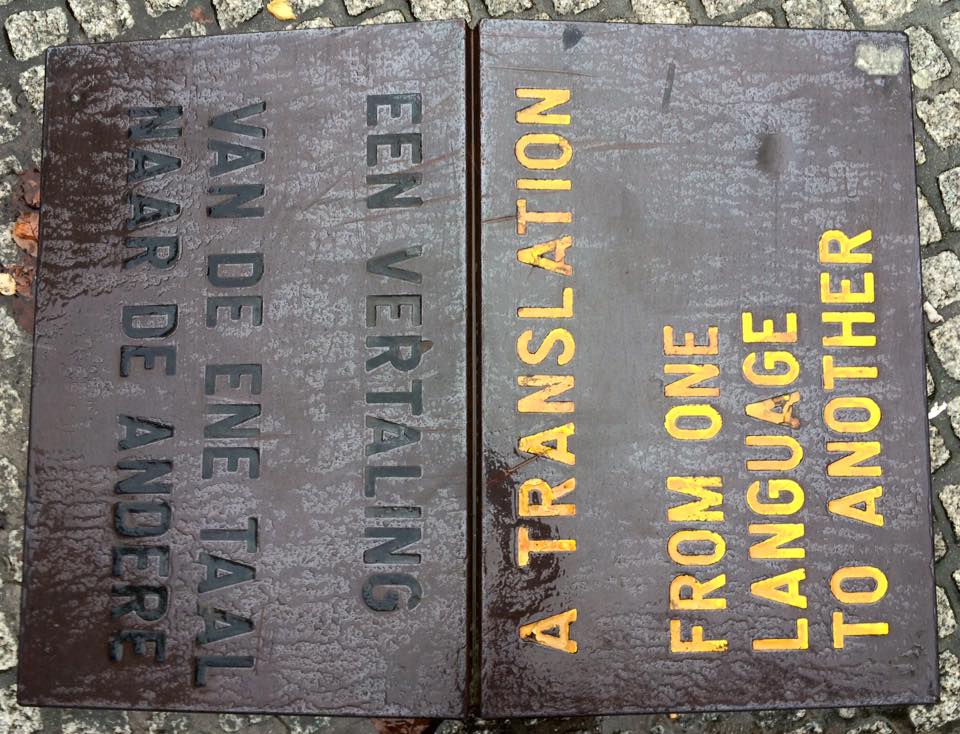
Photo taken on Spui – Amsterdam
For comments please see the original Facebook post.


